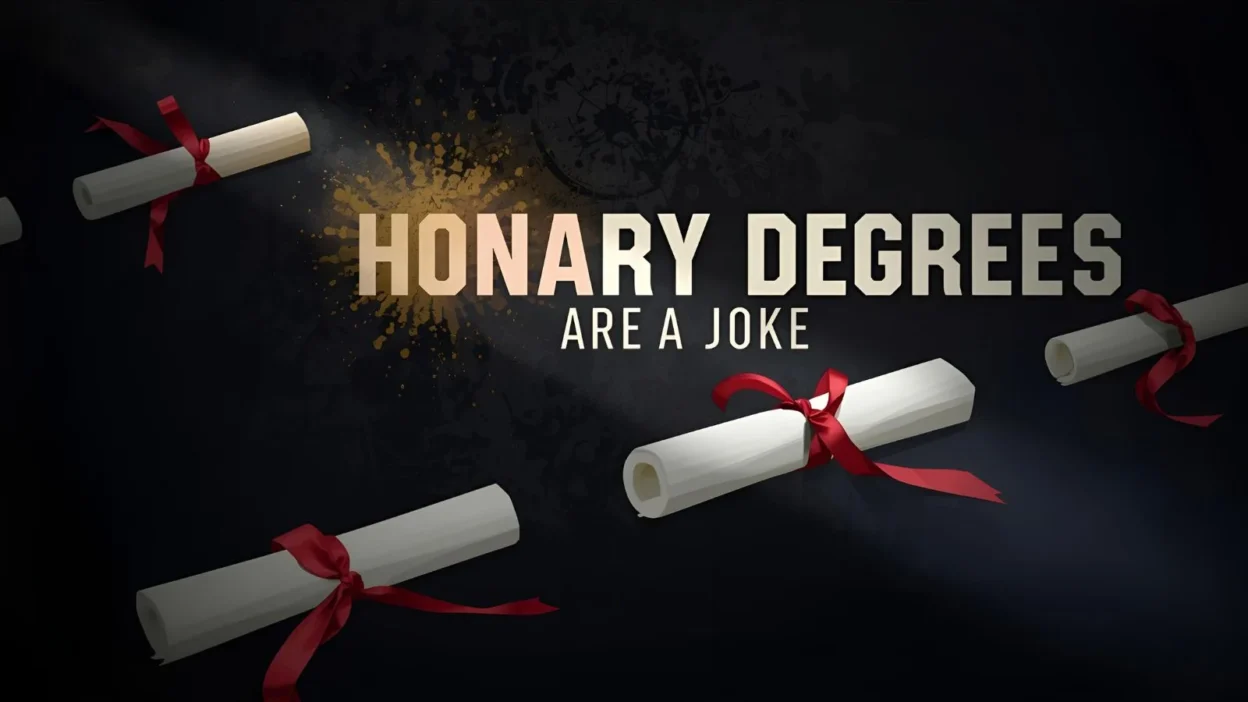In 2025, honorary degrees are getting more side-eyes than applause. Once seen as symbols of wisdom and contribution, they’re now the punchline of many academic jokes. The phrase “honorary degrees are a joke” has become popular across social media and campuses as people question their real value.
Students who’ve spent years studying feel frustrated when celebrities or influencers receive the same titles without writing a single essay. This article dives into why some believe honorary degrees are a joke, what they truly represent, and how humor and criticism have made them trending topics in modern education debates.
What Is an Honorary Degree?
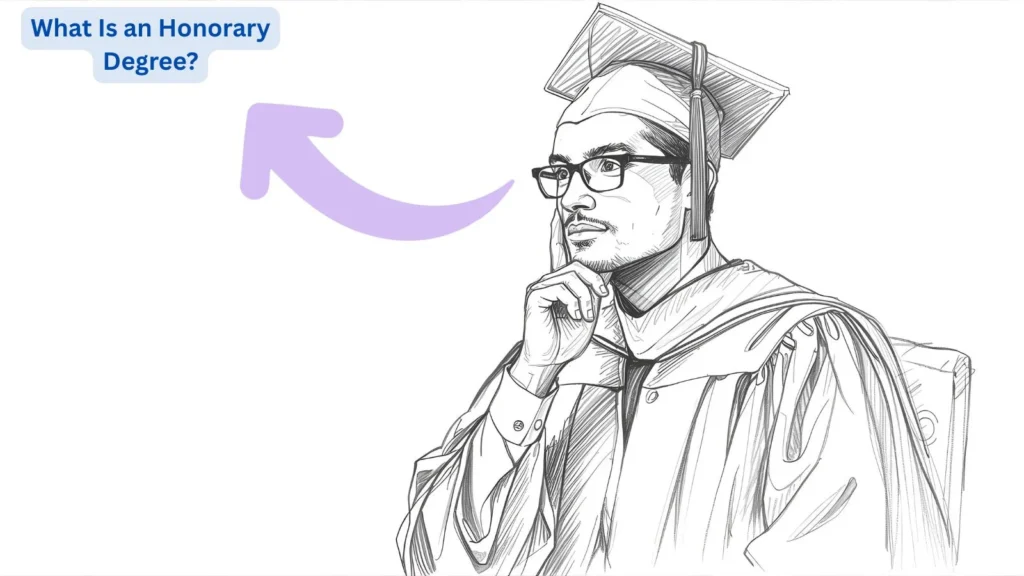
- An honorary degree is a symbolic award given by a university to honor someone’s achievements.
- It’s often granted to celebrities, philanthropists, or political figures.
- The recipient doesn’t attend classes, submit work, or take exams.
- It’s considered a gesture of respect, not a real academic qualification.
- Universities use it to highlight shared values or attract publicity.
- Recipients may be called “Doctor,” but it’s honorary only.
- That’s why many students call it “the easiest degree in the world.”
- The line between honor and humor is getting blurrier each year.
Why People Say “Honorary Degrees Are a Joke”
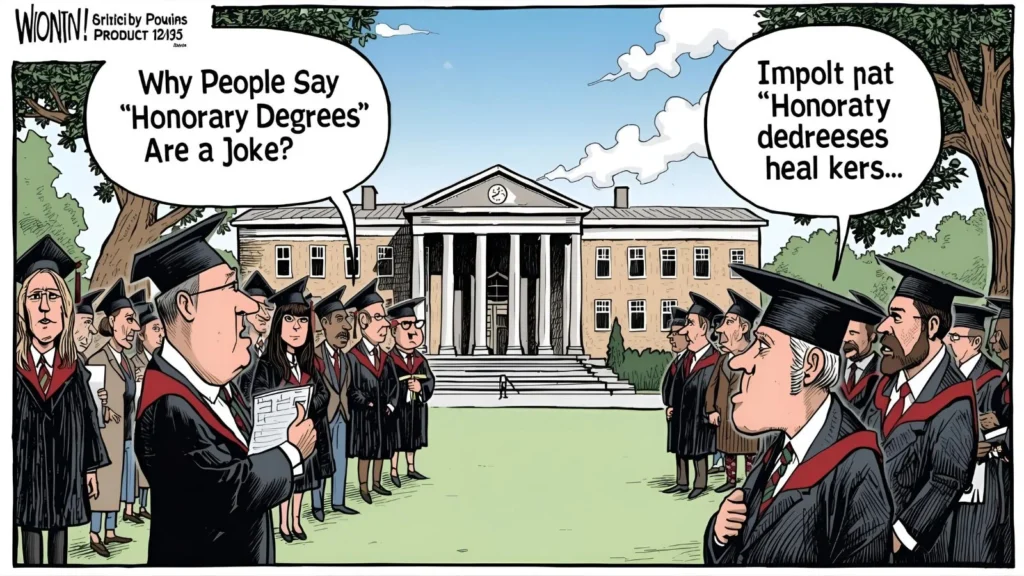
- Because they’re awarded without actual study or exams.
- Some think it disrespects those who earned real degrees through effort.
- When influencers receive them, critics see it as publicity, not merit.
- It can feel like universities are chasing headlines, not higher learning.
- Memes about “Doctor Kanye” or “Professor Taylor Swift” fuel the humor.
- Many people feel it’s more of a photo opportunity than an academic milestone.
- The phrase became viral as people joked, “Where do I apply for mine?”
- It reflects both sarcasm and genuine frustration in academic culture.
Famous People with Honorary Degrees
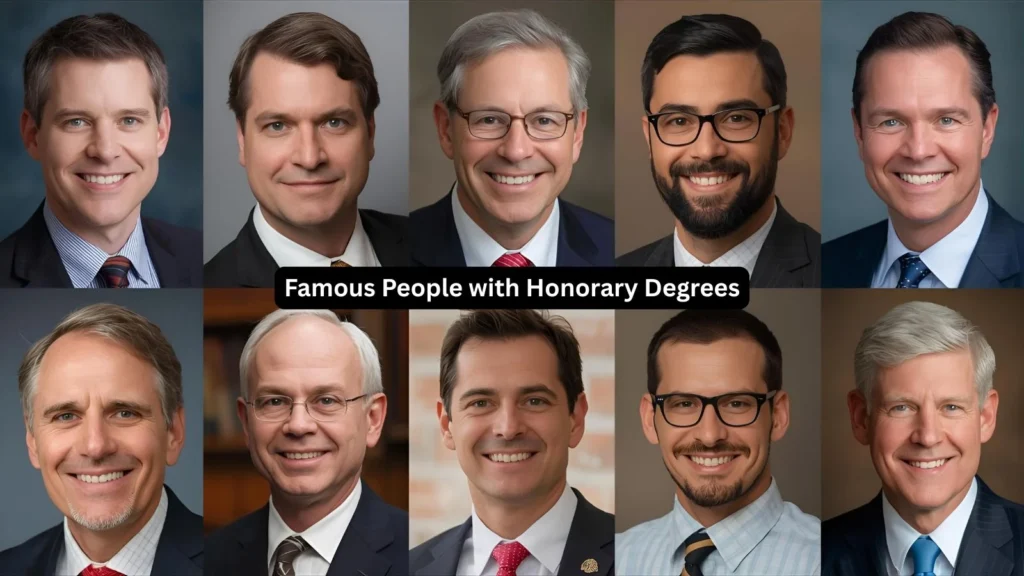
- Oprah Winfrey — multiple honorary doctorates for philanthropy and media work.
- Taylor Swift is recognized for her impact on the arts and culture.
- Barack Obama received several awards for leadership and service.
- Elon Musk — ironically, no honorary degree yet (he might be too busy).
- J.K. Rowling — honored for literature and storytelling.
- Bill Gates — received one after dropping out of Harvard!
- Dolly Parton — loved for her charity and literacy programs.
- The list shows that fame often opens more doors than classrooms.
When Honorary Degrees Go Wrong
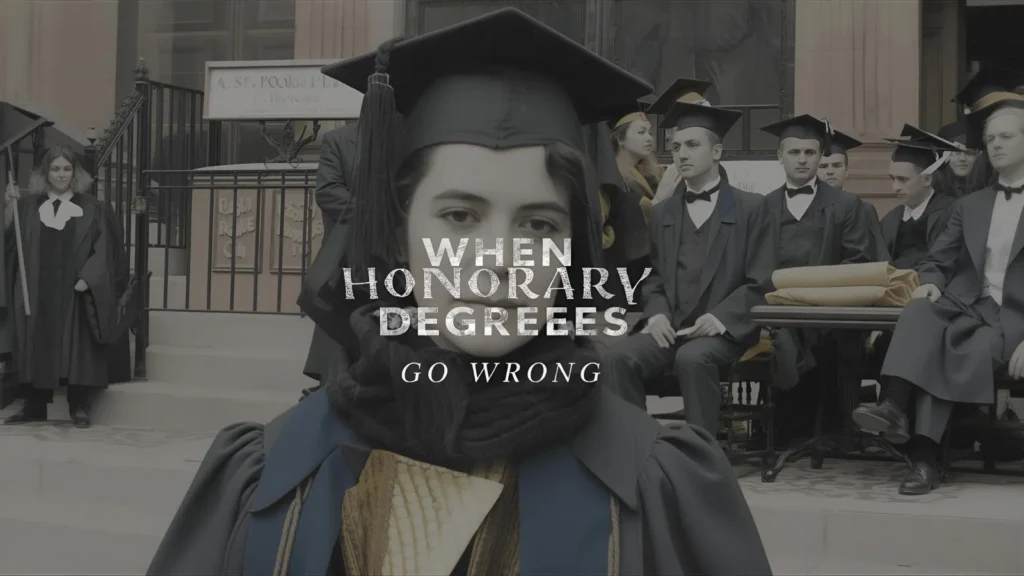
- Some recipients later face controversies that embarrass universities.
- A few have even had their honorary titles revoked.
- It raises questions about due diligence and long-term reputation.
- Social media amplifies backlash when “unqualified” figures are chosen.
- Sometimes, the joke writes itself — “Doctor” with no dissertation.
- Critics say it devalues academic integrity.
- Universities argue it’s tradition, not competition.
- Either way, the debate keeps trending every graduation season.
Honorary vs. Earned Degrees
- Earned degrees require years of study and verified knowledge.
- Honorary degrees recognize influence, not intelligence.
- One builds expertise; the other builds image.
- Graduates often joke that honorary degrees come with honorary student loans.
- You can’t get a job based on one — it’s purely symbolic.
- It’s like being crowned “chef” after tasting a meal.
- The difference between effort and applause is what fuels the mockery.
- Both have value, but only one is academically authentic.
The Internet’s Take: Memes & Mockery
- Twitter and Reddit love the phrase “honorary degrees are a joke.”
- Memes show celebrities holding diplomas with “LOL” written on them.
- Humor helps express real frustration through laughter.
- Gen Z users remix graduation photos with ironic captions.
- TikTok skits joke about applying for “honorary attendance awards.”
- The meme culture keeps this topic hilariously alive.
- The internet truly turned satire into sociology.
Why Universities Still Give Them
- It attracts media attention and prestige.
- Famous recipients boost the school’s visibility.
- Alumni and donors love high-profile ceremonies.
- It connects institutions with cultural figures.
- Sometimes, it’s a strategic move for PR.
- Honorary titles can inspire current students — ideally.
- Despite criticism, universities see it as a harmless tradition.
- They believe it honors contributions beyond academia.
Should We Still Respect Honorary Degrees?
- Respect the person, not just the paper.
- Some recipients genuinely deserve recognition.
- But credibility depends on context — not fame.
- It’s fine to appreciate achievement while questioning the process.
- Real respect lies in honesty about what it means.
- Education and influence are different kinds of power.
- Transparency can turn mockery into meaning.
- The key is balance, not blind admiration.
Humor in Academic Culture
- Students cope with stress through smart humor.
- Jokes about honorary degrees reflect real emotions.
- Laughter becomes a safe way to critique the system.
- It’s academic satire — witty, not cruel.
- Comedians often use “doctor jokes” to mock elitism.
- Universities might as well join the fun.
- After all, humor keeps education human.
- A good laugh is the best lesson.
Honorary Degrees in 2025: Symbol or Spectacle?
- The debate continues stronger than ever.
- Some call them outdated — others see them as harmless tradition.
- Modern universities face pressure to stay relevant.
- Social media exposes the fine line between respect and ridicule.
- In 2025, credibility matters more than ceremony.
- Honorary degrees may remain symbolic, but not sacred.
- They reflect society’s love for fame over formal study.
- And that’s why, for many, honorary degrees are still a joke.
Conclusion
Whether you laugh at them or defend them, one thing’s clear: honorary degrees are a joke that says a lot about modern culture. They blur the line between achievement and appearance, reminding us that respect can’t be printed on fancy paper.
Real learning takes time, effort, and humility — and that’s no joke. So, next time you see a celebrity in a cap and gown, smile and remember: some degrees are earned, and others are just honorary applause.

I am Stephen King, a name that rules both horror legends and humor headlines on Jokestide.com.
I am here to twist words, spark laughs, and turn iconic fame into joke-worthy fun.
I am not the horror I’m the punchline that keeps readers hooked.

